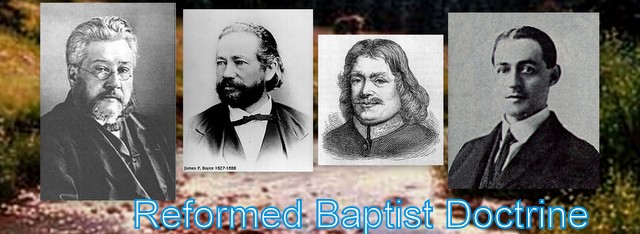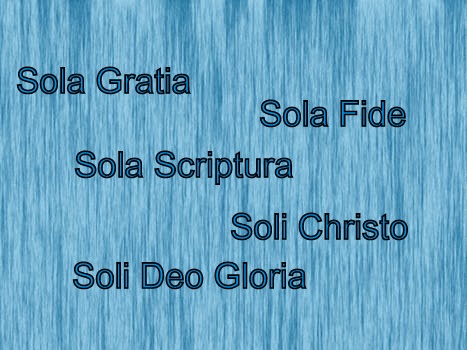Reformed
Theology
|
This definition or explanation of Reformed Theology is my own: Reformed Theology- is that branch of theology that developed out of the Protestant Reformation through men such as: William Farel, John Knox, Huldrych Zwingli, and more particularly John Calvin. Matter of fact, Reformed Theology is so closely associated with John Calvin that it has been nicknamed 'Calvinism.' Martin Luther, in his protest against the Roman Catholic Church, reformed certain areas of theology, but still clung to the Roman Catholic traditions in other areas. However, unlike Luther, Calvin sought to Reform all areas of theology, bringing all of theology back to a Biblical foundation. However, this is not say that Calvin rejected creeds of the early church. Calvin recognized that the church had already settled certain points of theology; points which can be found in the Nicene Creed and the Council of Chalcedon. But in the end, what concerned Calvin when developing his theology was not what church traditions declared or pronounced upon the masses, but what concerned him the most is what saith the Lord. Therefore, Reformed Theology is God-centered, Christ-centered, and is founded upon the five solas listed at the top of this page in the banner. This definition comes from Theopedia: Reformed theology- is generally considered synonymous with Calvinism and most often, in the U.S. and the UK, is specifically associated with the theology of the historic church confessions such as the Westminster Confession of Faith or the Three Forms of Unity. What does it mean to be Reformed? A summary of Reformed theology, or what it means to be Reformed, may be seen in the following: It means to affirm the great "Solas" of the Reformation. (See the Five Solas) It means to affirm and promote a profoundly high view of the sovereignty of God. It means to affirm the doctrines of grace. . . to see God as the author of salvation from beginning to end. (See Calvinism) It means to be creedal. . . to affirm the great creeds of the historic, orthodox church. (See e.g. the Nicene Creed) It means to be confessional. . . to affirm one or more of the great confessions of the historic orthodox church. (see e.g. the Westminster Confession) It means to be covenantal. . . to affirm the great covenants of Scripture and see those covenants as the means by which God interacts with and accomplishes His purposes in His creation, with mankind. (see Covenant Theology) It means to take seriously the Great Commission of Matthew 28:19-20. . . to affirm the primacy of mission and understand that mission. It means to have a distinctly Christian worldview that permeates all of life. |
|
There are many articles here that do not deal with Reformed Theology in particularly, but deal with the Protestant Reformation in general. Until I can find time to develop a page on the History of the Protestant Reformation, they will remain here. I already have a page that is labeled 'Gospel centered' and 'Tulip.' Some of these links would fall under those categories and could properly be placed on those pages. However, both of these subheadings: 'Gospel-centered' and 'Tulip' would fall under the umbrella or main heading known as Reformed Theology. One final note: Many believe, in the making of the Protestant Reformation, that one view of covenant-theology emerged. However, this is not the case. There were several views concerning covenant-theology that developed out of the Reformation. Therefore, there are several links here that are associated with what is known as 1689 Federalism or Particular Baptist covenant theology. When I have the time, subheadings will be placed in this page and everything organized as it should be. |
|
Refutation of New Perspectives on Paul: A Defense of the Old Perspective on Paul What Did St. Paul Really Say? by Phil Johnson An Overview and Critique of the New Perspective on Paul's Doctrine of Justification by Jeffrey Smith The New Perspective on Paul: Its Basic Tenets, History and Presuppositions by F David Farnell What are the Attractions of the New Perspective on Paul? by Dr J Ligon Duncan III Jorge Ruiz- N.T. Wright Or the Recatholisation of Protestant Thought |

